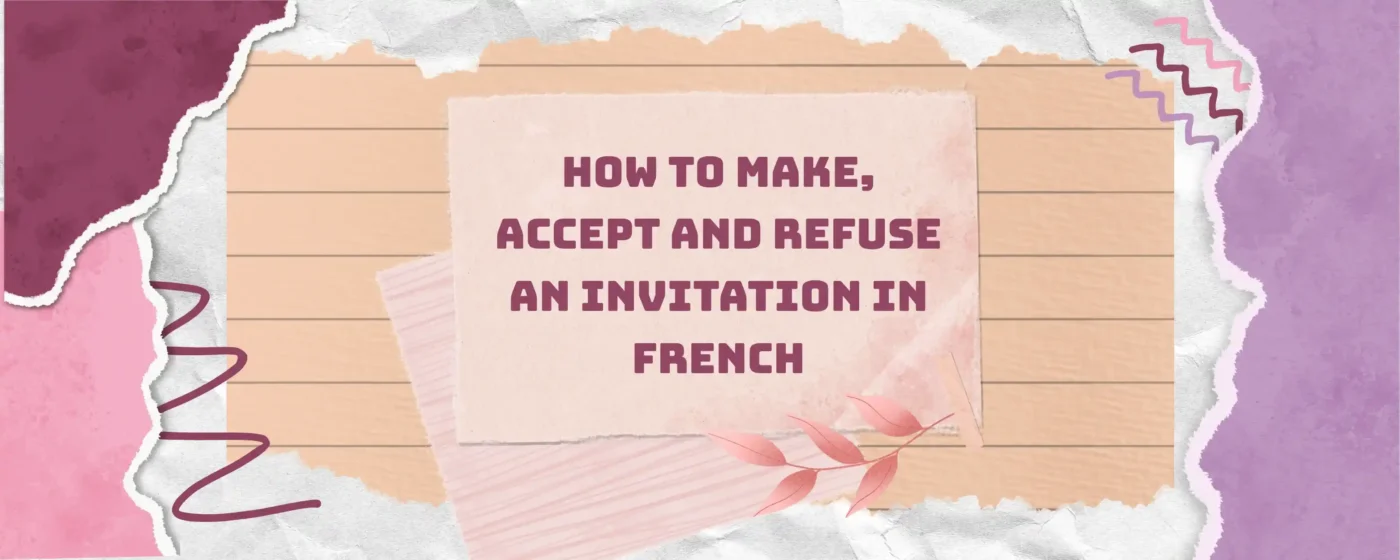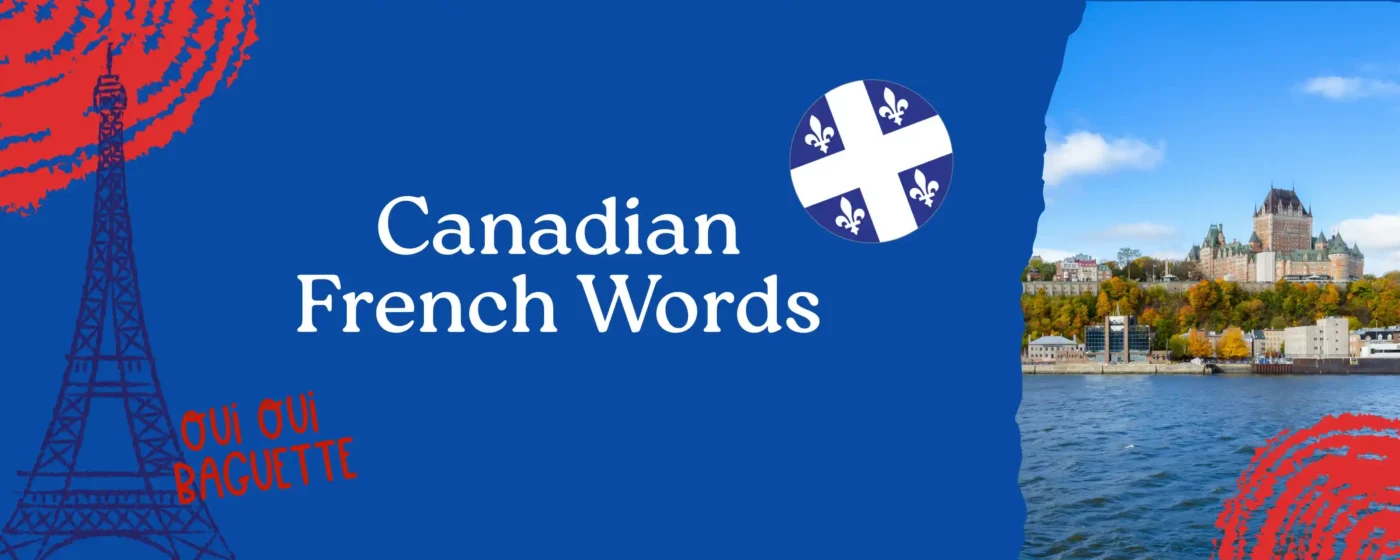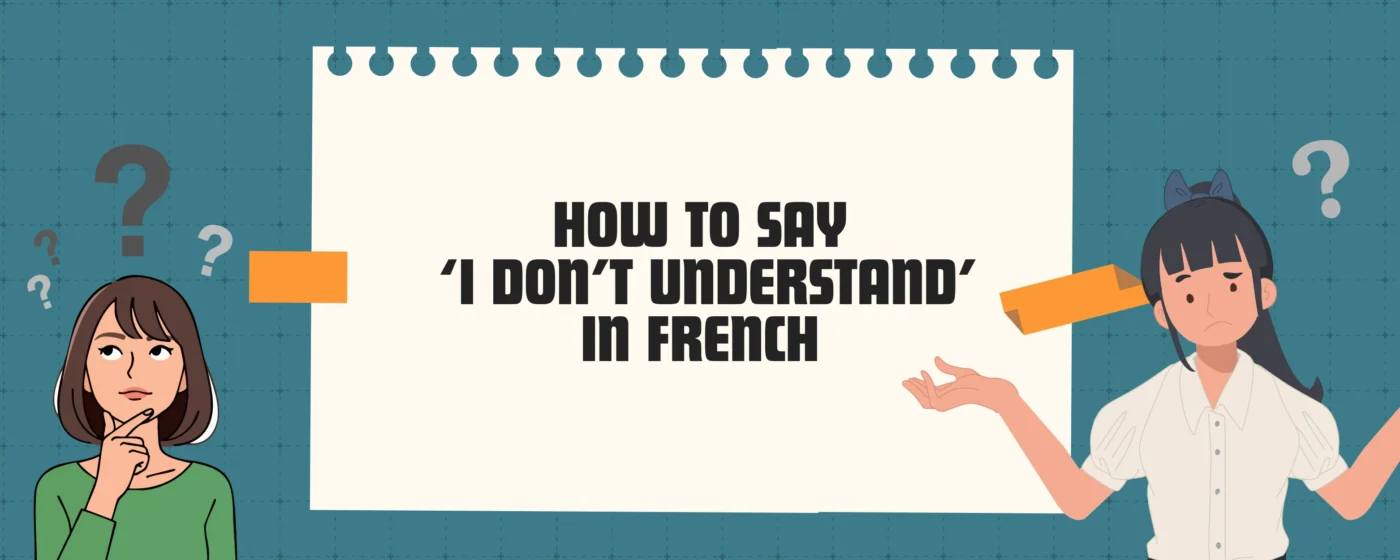How to Accept or Decline an Invitation in French?

Knowing how to accept as well as refuse invitations in French is essential for effective communication, as they are central to building and maintaining relationships. In French culture, invitations hold great importance, whether for social gatherings with friends and family or for professional networking and events. Responding appropriately shows respect, politeness, and cultural awareness, which in turn strengthens connections. In this article, you will discover useful phrases, key etiquette tips, and practical examples to confidently accept, decline, or extend invitations in French. Allez-y!
Key Takeaways
- Understand the different ways to invite others in French, such as polite or casual language.
- When you accept an invitation that time you say “Thank you” for politeness and your happiness for joining.
- Need to decline an invitation, use kind words to explain why, and also suggest a time or an idea.
- Expressing excitement in your reply makes the conversation warm and friendly.
- Knowing French etiquette around invitations helps you be polite and maintain good relationships with others.
Common French Phrases for Making an Invitation
Formal Invitations
In professional or polite settings, French speakers use respectful and structured phrases, such as the following:
- Je vous invite à… – I invite you to…
- Auriez-vous l’amabilité de venir à… – Would you be so kind as to come to…
- Nous serions honorés de votre présence à… – We would be honored by your presence at…
- Veuillez assister à… – Please attend…
- Nous avons le plaisir de vous convier à… – We are pleased to invite you to…
These phrases highlight courtesy, respect, and formality, suitable for professional gatherings, official events, or formal dinners.
Informal Invitations
Among friends, family, or peers, the tone becomes relaxed and friendly. This is when you can make use of informal invitations. Let’s have a look:
1. Tu veux venir à… ? – Do you want to come to…?
2. Ça te dit de… ? – Do you feel like…?
3. Viens chez moi ce soir ! – Come to my place tonight!
4. On se retrouve à… ? – Shall we meet at…?
5. Si tu es libre, on fait… – If you’re free, let’s do…
By mastering both formal and informal invitation phrases in French, you can navigate the world of French society smoothly.
Enhance your daily conversations by learning 8 ways to say “How are you?” in French and sound more natural with natives.
How to Accept an Invitation in French Politely?
Always remember that in French, politeness and tone are crucial when accepting invitations. Unlike in some languages, where a simple “yes” may suffice, French often requires a nuanced response that matches the relationship and the setting!
Formal
In professional or official situations, a polite and refined tone shows respect for the host and the occasion. Formal language avoids contractions and includes courteous expressions of gratitude.
For example:
- Je vous remercie beaucoup pour votre invitation. J’accepte avec grand plaisir.
- C’est avec joie que je serai présent(e) à votre réception.
Informal
Among friends or family, the tone shifts to warmth and enthusiasm. Politeness remains, but it is expressed in a relaxed way, often with excitement. For instance:
- Oui, super ! J’ai hâte d’y être.
- Avec plaisir, ça va être génial !
Showing Enthusiasm in French
When accepting an invitation in French, showing excitement makes your response warm and engaging. It conveys the fact that you’re genuinely enthusiastic about the invitation and strengthens your connection with your host.
Here are some common phrases you can use:
- J’ai vraiment hâte d’y être ! – I really can’t wait to be there!
- Je suis impatient(e) de vous voir à cette occasion. – I’m looking forward to seeing you at this event.
- Quelle excellente idée, j’ai hâte ! – What an excellent idea, I can’t wait!
- C’est exactement ce dont j’avais envie, merci ! – That’s exactly what I wanted, thank you!
- Avec grand plaisir, je viendrai ! – With great pleasure, I’ll come!
How to Refuse an Invitation in French Without Offending?
Declining an invitation in French is a tricky but doable thing! It requires tact, much like other social etiquettes in France.
Formal Declines
In professional or formal contexts, refusals must remain courteous and respectful. It is important to thank the host and, if possible, provide a brief reason.
For example:
- Je vous remercie vivement de votre invitation, malheureusement je ne pourrai pas y assister.
- C’est avec regret que je dois décliner, mais j’espère une autre occasion prochainement.
Informal Declines
With friends or family, the tone can be more relaxed but should still show appreciation. A light explanation or suggestion for another time helps maintain closeness.
For instance:
- Merci beaucoup, mais je ne peux pas cette fois. On se voit bientôt ?
- Désolé(e), je suis déjà pris(e), mais une prochaine fois avec plaisir !
Stop Guessing, Start Speaking!
With our expert tutors, you’ll master the words you need to speak French confidently!
Giving a Reason and Suggesting an Alternative
When declining an invitation in French, it’s polite to give a reason and suggest another opportunity to meet. This shows you value the invitation and wish to maintain a cordial relationship!
Here are some useful phrases:
- Je ne suis pas disponible ce soir, mais demain ça irait ? – I’m not available tonight, but would tomorrow work?
- J’ai un rendez-vous ce jour-là, mais on peut se voir la semaine prochaine ? – I have an appointment that day, but can we meet next week?
- Je dois travailler tard, mais un café ce week-end ? – I have to work late, but how about coffee this weekend?
- Je suis déjà pris(e), mais on se rattrape bientôt ? – I’m already busy, but shall we catch up soon?
- Je ne peux pas venir cette fois, mais organisons quelque chose bientôt. – I can’t come this time, but let’s plan something soon.
Cultural Etiquette for French Invitations
In French culture, invitations carry weight – observing proper etiquette is essential to maintaining good relationships.
One key norm is the RSVP (Répondez s’il vous plaît), which is taken very seriously. Failing to confirm attendance, or replying too late, is seen as impolite and rude!
Timing also matters: arriving too early can be considered intrusive, while arriving slightly late is generally acceptable. For professional gatherings, punctuality is expected.
Dress codes are another important aspect. Casual invitations may be more relaxed, but for dinners, weddings, or formal events, guests are expected to dress elegantly and appropriately.
To avoid common mistakes:
- Remember to never show up unannounced with extra guests unless allowed.
- Always bring a small gift, such as flowers or wine, when invited to someone’s home.
If you’d like to feel more confident navigating such cultural nuances, La Forêt French Class can offer you insights and practical guidance. Their French language lessons will not only teach you the right phrases but also explain etiquette, helping you master invitations with ease and authenticity, both socially and professionally!
Practice Exercises for French Invitations
Here are some short exercises to help you practice handling invitations in French.
1. Fill in the Blanks
Complete with the correct word:
- Merci beaucoup, mais je ne ______ pas disponible ce soir.
- Avec grand ______, j’accepte votre invitation.
- Désolé(e), je suis déjà ______, mais une prochaine fois !
2. Dialogue Practice
Partner A: Tu veux venir à ma fête vendredi ?
Partner B: Respond with one acceptance (enthusiastic) and one polite refusal (with a reason and alternative).
Answer Key
Fill in the Blanks
- suis
- plaisir
- pris(e)
Dialogue Practice
Acceptance:
A: Tu veux venir à ma fête vendredi ?
B: Oui, super ! J’ai vraiment hâte d’y être !
Polite refusal:
A: Tu veux venir à ma fête vendredi ?
B: Merci beaucoup, mais je ne suis pas disponible ce soir. Et si on se voyait ce week-end ?
The key to handling French invitations lies in matching your tone to the context: use formal phrasing for professional settings and informal expressions with friends. When accepting, show enthusiasm and gratitude; when declining, remain polite, often giving a reason and suggesting another meeting. Above all, respect cultural norms like RSVP, timing, and dress.
Try applying these phrases in real-life situations, whether with classmates, colleagues, or French-speaking friends.
Keep practicing, stay confident, and remember: every invitation is an opportunity to grow your French skills!
Enhance your French vocabulary by exploring 25+ Famous French Sayings that beautifully capture everyday expressions and cultural charm.
Frequently Asked Questions
1. How to reject a guy in French?
Ans: Be kind yet clear – “Tu es gentil, mais je ne suis pas intéressée.” or “Je préfère qu’on reste amis.”
2. Do I always need to say “merci” when accepting an invitation?
Ans: Yes! Gratitude is essential in French culture. Even a simple “Merci, avec plaisir!” shows appreciation.




